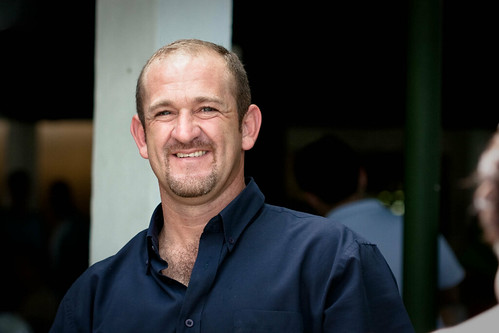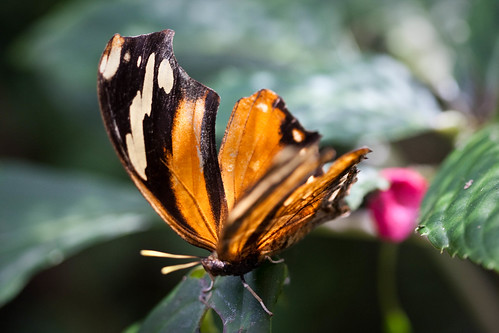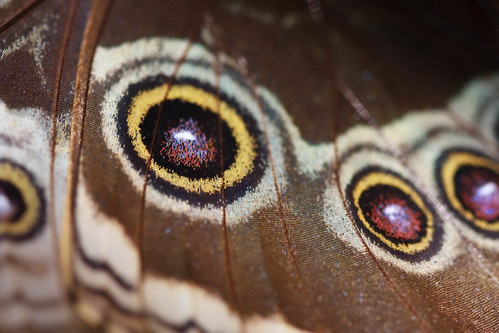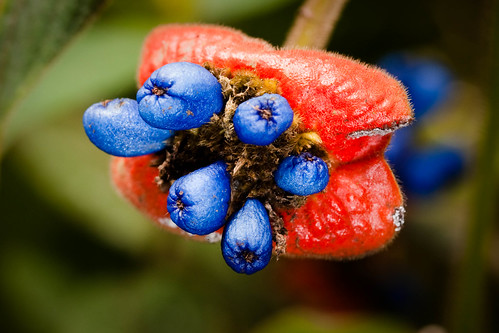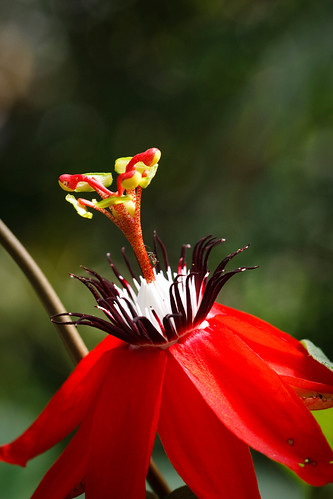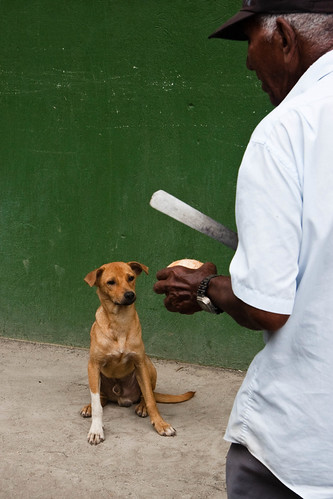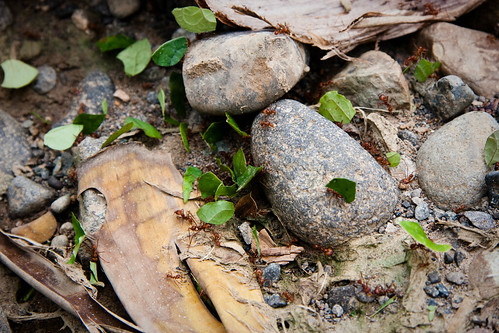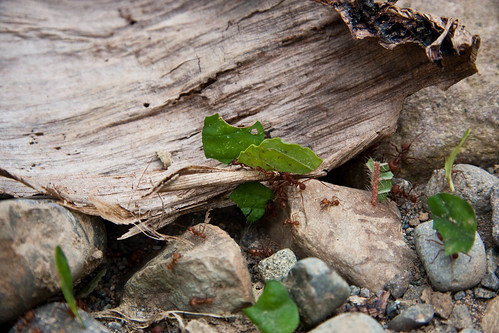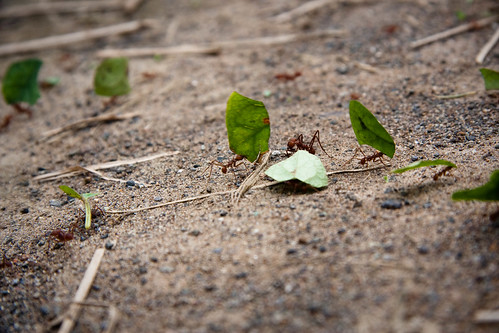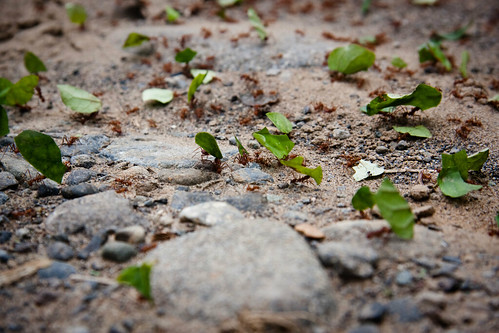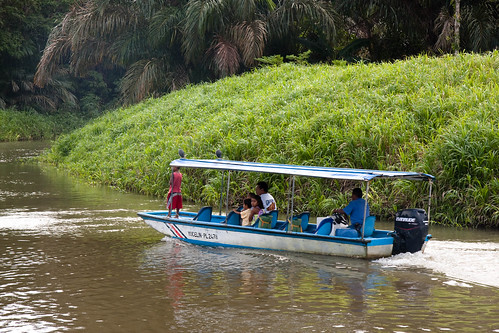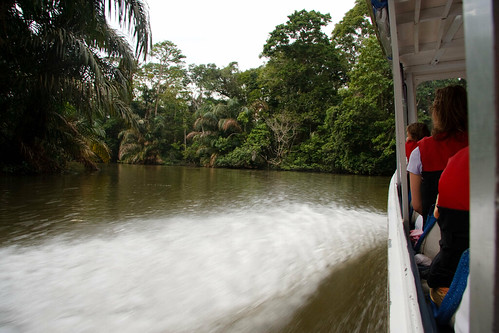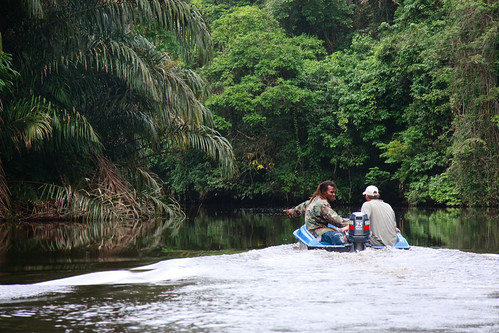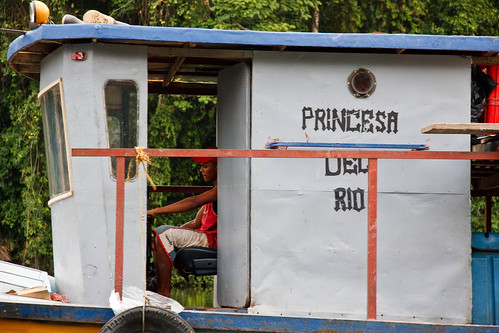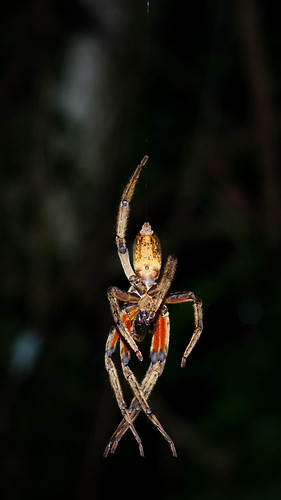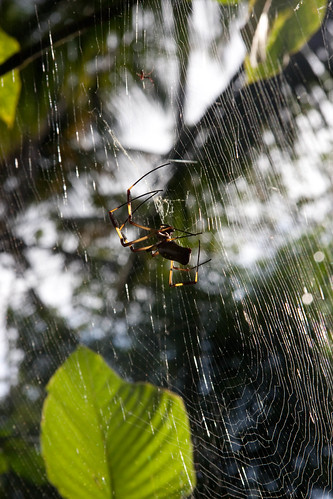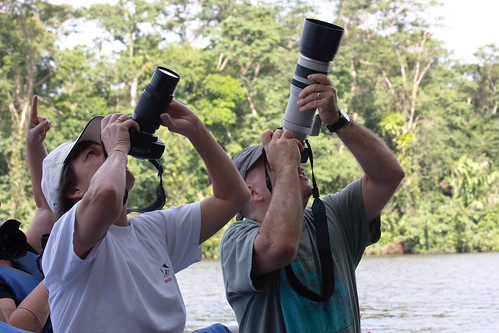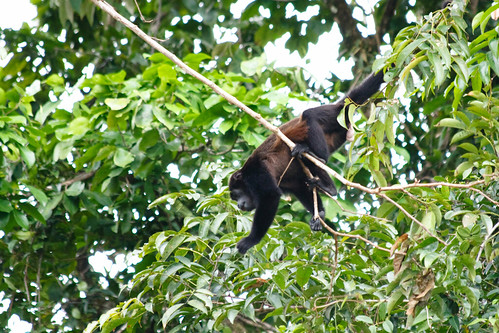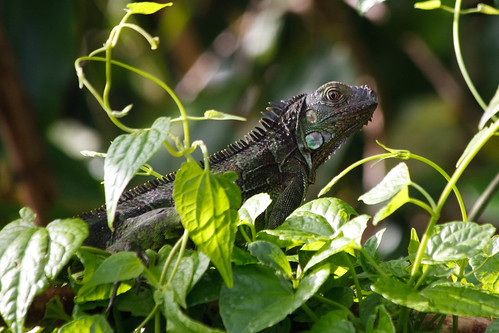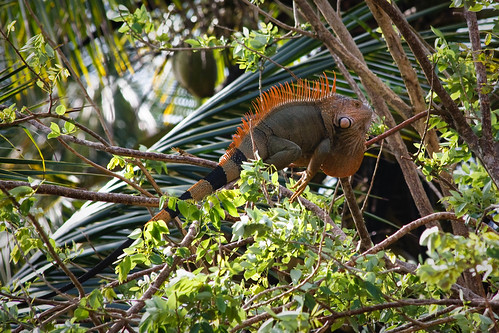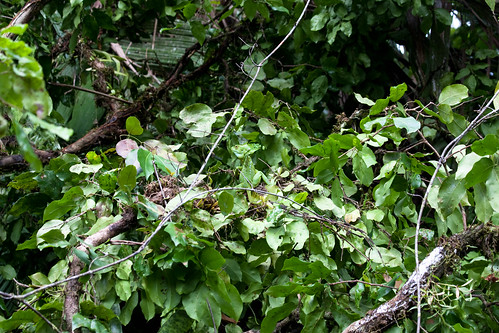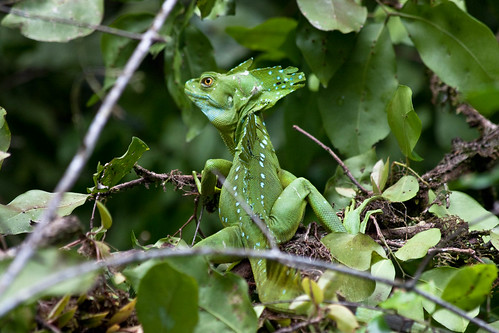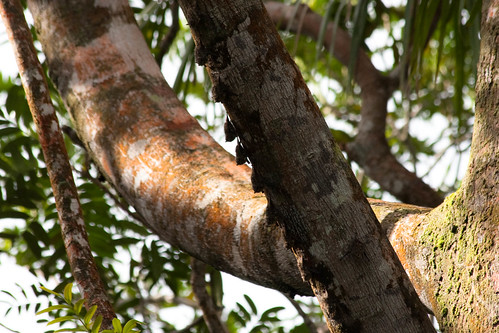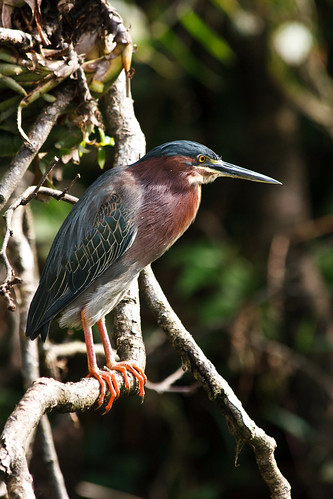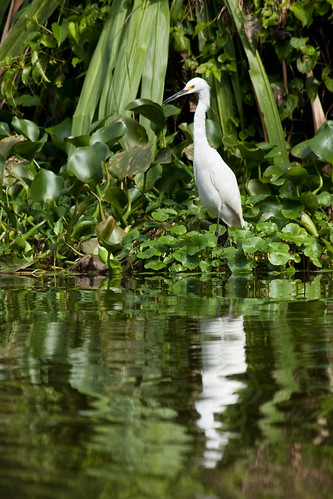Around 2pm we stopped at a Del Monte banana plantation and learned about the entire banana pipeline, from growing through picking to sorting and packing.
While on the tree, the bananas are encased in blue plastic bags. The bags protect the bananas from predators and damage, and also keep them from being sprayed by the insecticides.
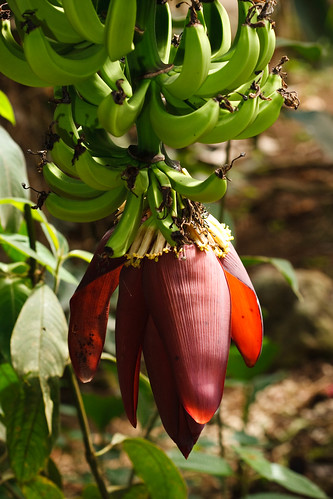
Wild bananas (not at the plantation)
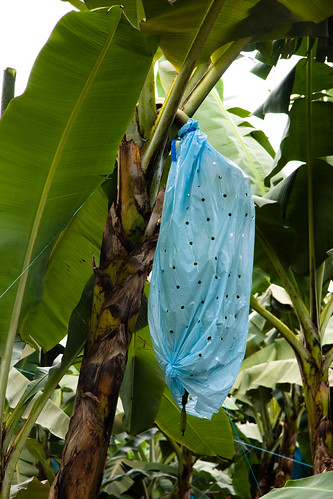
Tame bananas (at the plantation)
Once cut from the trees, they are hauled in trains of about 30 bunches suspended from an overhead cable system. The guys who do the pulling are among the more highly paid workers, and when you watch them do this grueling work you understand why.
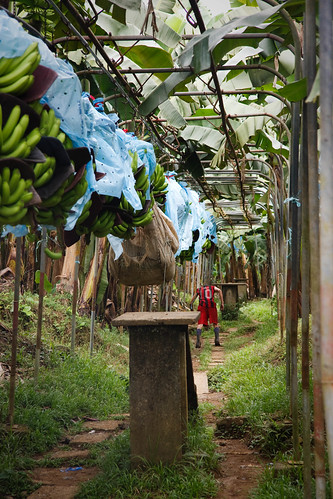
Hauling bananas
Once at the processing area, the ‘hands’ are separated from the main stalk and floated down a pool to workers who cut them into smaller bunches and sort them for quality. Level 1 bananas are exported to the US and Europe, Level 2 bananas (which are smaller and may have small scars) are sold for baby food or pig food, and Level 3 bananas are discarded. You can buy a banana in Costa Rica for a few cents.
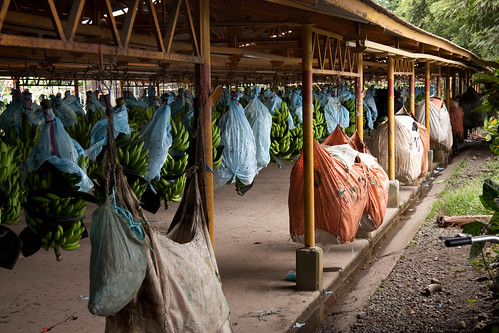
Banana staging
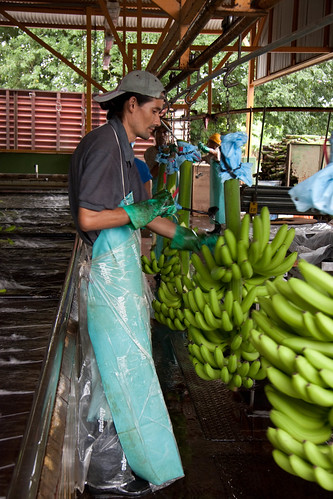
The ‘hands’ are cut off the stalk and thrown into a water stream, where they’re cleaned as they float to the next step.

These women cut the hands down to smaller bunches and sort them. It was amazing how fast they were.
Next to the processing area a few vendors were selling miscellaneous items, including fresh coconuts. I would guess this little guy got his share.

